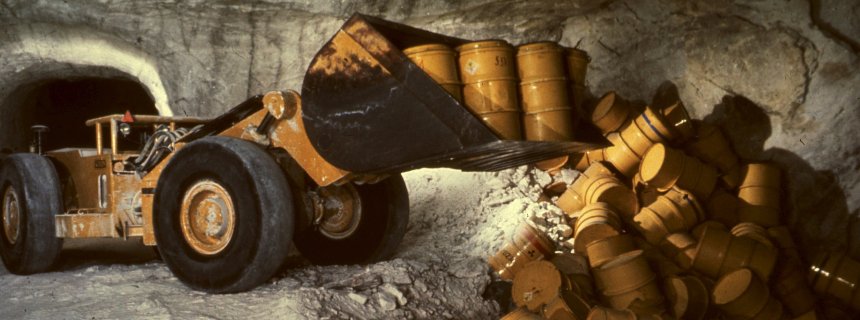– Abyss of Uncertainty: Germany’s Homemade Nuclear Waste Disaster (Der Spiegel, Feb 21, 2013):
Part 1: Germany’s Homemade Nuclear Waste Disaster
Some 126,000 barrels of nuclear waste have been dumped in the Asse II salt mine over the last 50 years. German politicians are pushing for a law promising their removal. But the safety, technical and financial hurdles are enormous, and experts warn that removal is more dangerous than leaving them put.
It’s hot and sticky 750 meters (2,500 feet) underground, and the air smells salty. Five men are standing in front of an oversized drill. They have donned orange overalls and are wearing bulky special shoes, yellow hard hats and safety glasses. They turn on the machine, and the rod assembly slowly eats its way into a gray wall.
For over seven months now, the team has been trying to drill a hole with a diameter of eight centimeters (three inches). They are attempting to reach one of the former excavation chambers of Asse II, an old salt and potash mine near the northern German town of Remlingen, in the northwestern German state of Lower Saxony. Behind a barrier 20 meters thick, thousands of drums filled with nuclear waste have been rotting away for over three decades.
It’s dangerous work. Over the years, experts warn, explosive gases may have collected in underground cavities — and one spark could trigger a disaster. Consequently, the drill head is only allowed to turn extremely slowly. After the machine has barely advanced another 10 centimeters, the men pull the drill pipe out of the hole and insert a probe. They thus manage to inch their way forward about 20 centimeters per shift.
Read moreGermany’s Homemade Nuclear Waste NIGHTMARE – The Gorleben Salt Mines
